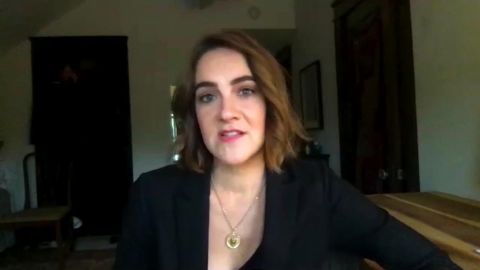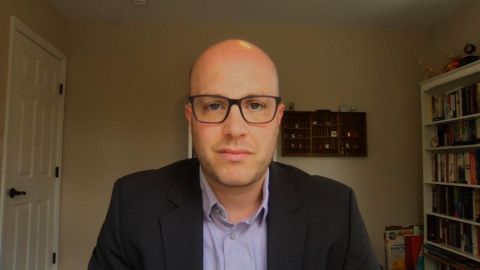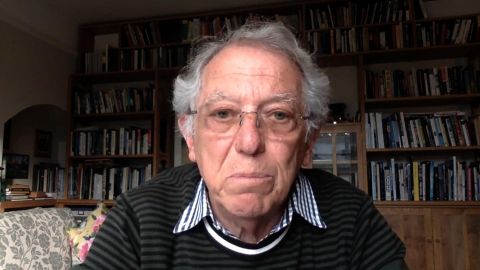Read Transcript EXPAND
CHRISTIANE AMANPOUR: Sum up why you think this is so important in the context of where we are now. What will it, in broad brush strokes, determine?
DAVID ENRICH, AUTHOR, “DARK TOWERS”: Well, this basically determines, in broad strokes, whether Donald Trump’s financial secrets will remain secret as he seeks re-election later this year. This is the president for his entire time in office and even before when he was campaigning has been a steadfast opponent of having to release almost any information about his personal and business finances, and that is broken with decades of precedent where people have released their tax returns. And so Deutsche Bank and Trump’s accounting from both — are sitting on quite a lot of his very detailed personal financial information. Congress sought that. And Trump and his family have sued to block anyone from actually disclosing this information. So, this is — the stakes are very high for President Trump. They’re also very high in from a constitutional standpoint in the U.S. because this is — the Trump argument is basically that Congress does not have a legitimate legal role to conduct a very aggressive investigation of the president.
AMANPOUR: I mean, exactly. I mean, that precedent was established during Watergate, that the president is not above scrutiny or immune from investigation. Just quickly tell us, because obviously, the president and allies and his attorney general have said that, yes, he is immune. He can essentially do anything while he is president, and that is immune while he is president. Nothing can be investigated, certainly, in terms of criminality even with allegations of such until afterwards. This seems to bring in an even bigger sort of radius of that sort of claimed immunity because it seems to be that they’re claiming that even third parties like Deutsche Bank or this and that can’t be talked about, can’t be — you know, can’t be challenged. Is that right?
ENRICH: Yes. That’s right. And it’s a very generous and broad interpretation, I think, of the presidential immunity and presidential power. And they are, in essence, saying, it’s not Donald Trump who has been subpoenaed here, it’s Deutsche Bank, it’s Capital One, it is his accounting firms subpoenaed. And the notion that Congress as part of its oversight responsibilities and also part of its legislative responsibilities cannot seek — go to a private party and asked for detailed information about them is a pretty aggressive interpretation. And the argument of the Congress is making is that this is core to the role under the U.S. constitution as providing checks and balances on the executive branch of government. And the argument, I think, that the Trump administration has going for here is that these subpoenas are very broadly written and they are — they do — there’s reason for them, for Congress to be investigating. But the way the subpoenas are written, it does smack a little bit of an open-ended fishing expedition.
About This Episode EXPAND
The UK’s former chief scientific adviser Sir David King joins Christiane Amanpour to discuss whether or not it’s time to ease the country’s lockdown. “Dark Towers” author David Enrich discusses tomorrow’s Supreme Court case regarding President Trump’s personal financial practices. Journalist Amanda Little joins Hari Sreenivasan to explain how COVID-19 is impacting the United States’ food supply.
LEARN MORE


